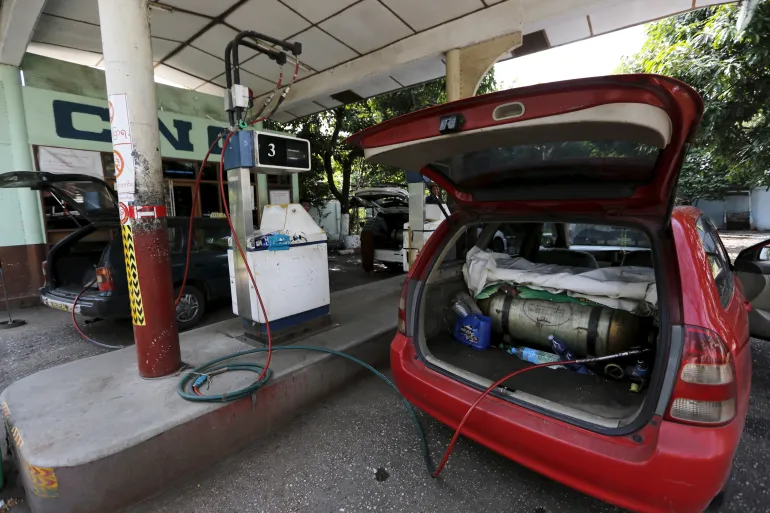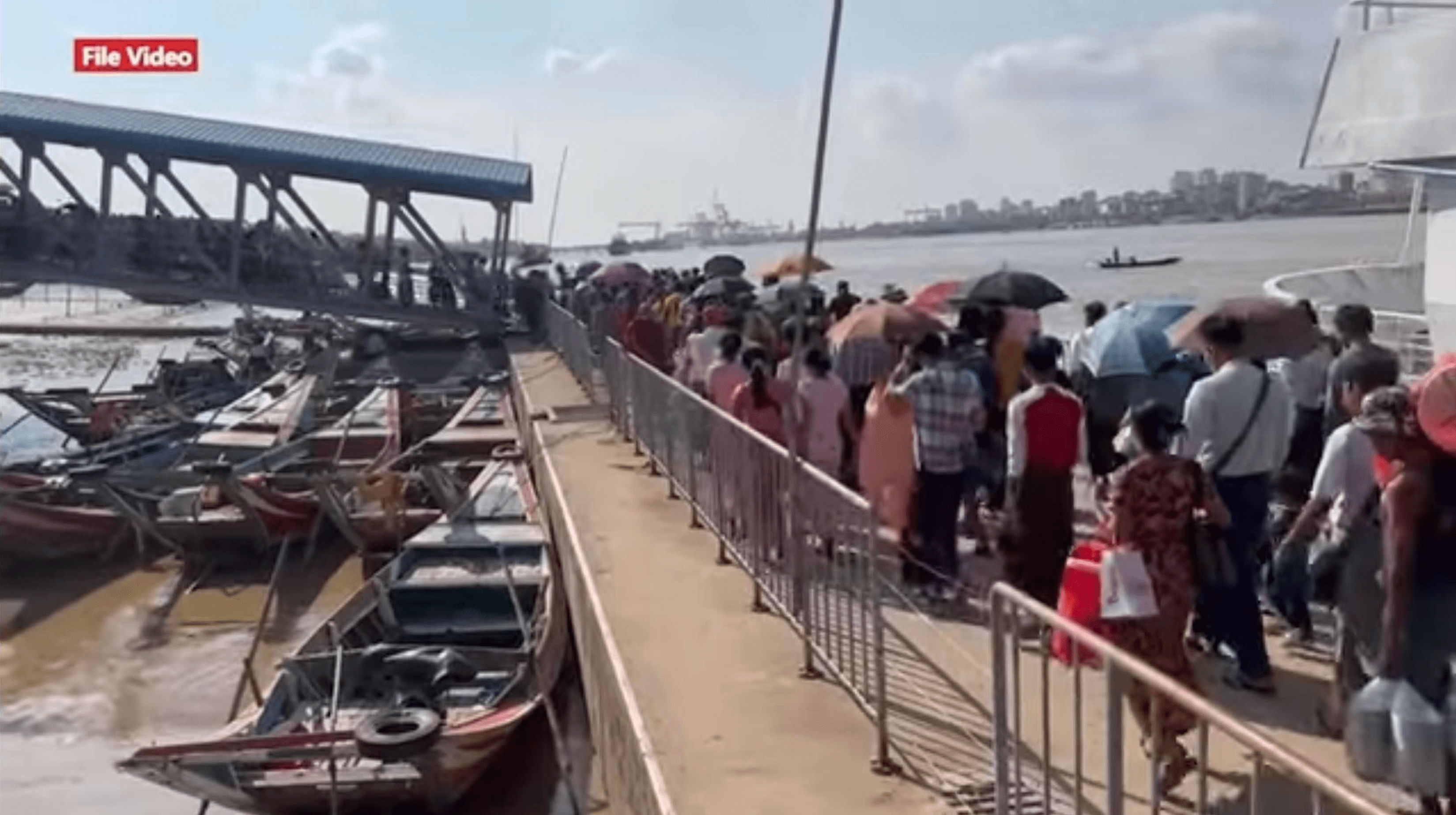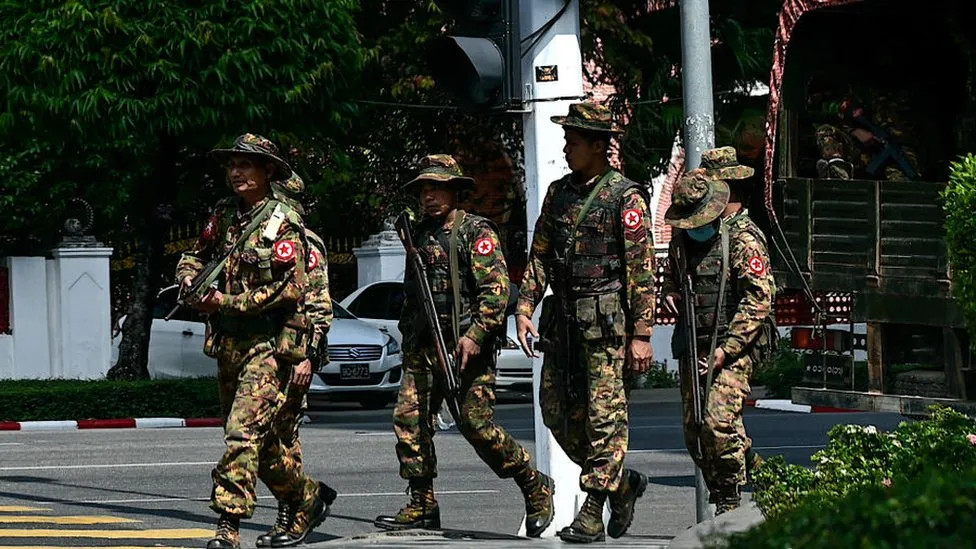Our contacts in Yangon have been telling us that the energy crisis is becoming more and more serious. Not only are there power outages, but it is now extremely difficult to buy gasoline.
Below is an edited version of an ALJAZEERA article.
ヤンゴンでは、エネルギー危機がますます深刻になっているそうで、停電だけでなく、ガソリンを買うのも非常に困難になっているとのこと。以下はALJAZEERAの記事を短く編集し、和訳したものである。
By Thompson Chau
Published On 11 Dec 2023
Petrol stations in Yangon have run out of supply while others have huge queues until late at night ヤンゴンのガソリンスタンドは供給不足 夜遅くまで大行列
“The cost of electricity has increased by eight to 10 times since the coup. We need to use generators and the fuel price has gone up a lot,” the businessman, who declined to be named for safety reasons, told Al Jazeera. “Neither the military nor petrol stations have any control over what’s going on. The regime seems clueless on how such a shortage will hurt the economy,” he added.
「クーデター以来、電気代は8倍から10倍になりました。発電機を使わなければならないし、燃料の値段もかなり上がっている。軍もガソリンスタンドも、このような供給不足が経済にどのような打撃を与えるのか、政権は何もわかっていないようです」と、安全上の理由から名前は伏せたビジネスマンは言った。
Guillaume de Langre, an energy expert and former adviser to the Myanmar government, said there is growing alarm in the country over declining gas production and the military’s hoarding of diesel imports. “Without gas or diesel, there is no way for hospitals to have reliable electricity to keep medicine and samples cooled, for example,” de Langre told Al Jazeera.
エネルギー専門家でミャンマー政府の元顧問であるギヨーム・ドゥ・ラングレ氏は、ガス生産量の減少や軍が輸入ディーゼルを買いだめしていることに対して、国内で警戒が高まっていると述べた。「ガスやディーゼルがなければ、例えば病院が薬やサンプルを冷やすための信頼できる電気を確保することはできません」
“Half of Myanmar’s electricity comes from gas. The looming crisis will worsen the current power cuts significantly. Gas exports also account for half of the currency reserves, which the military desperately needs. Energy presents an existential crisis for Myanmar,” de Langre said. “The gas crisis was expected, but the civilian government was rolling out plans to avert it. But since the coup, the currency depreciation, capital controls and loss of confidence have cancelled all of those plans.”
ドゥ・ラングレは続ける。「ミャンマーの電力の半分はガスから供給されている。迫り来る危機は、現在の停電を大幅に悪化させるだろう。ガス輸出はまた、軍がどうしても必要とする通貨準備高の半分を占めている。エネルギーはミャンマーにとって存亡の危機。ガス危機は予想されていたが、文民政府はそれを回避するための計画を展開していた。しかし、クーデター以来、通貨安、資本規制、信頼の喪失により、これらの計画はすべてキャンセルされた。」
Power gap 発電量の激減
Myanmar faces a huge gap in power following the coup. In May 2021, Myanmar produced around 4000MW of electricity. In recent months, electricity production has hovered between 2500 and 2600MW.
クーデター後、ミャンマーは電力不足に直面している。2021年5月、ミャンマーの発電量は約4000MWだったが、ここ数ヶ月、発電量は激減し、2500MWから2600MWの間で推移している。
To make things worse, major investors that were developing new offshore gas fields, including French giant Total and Woodside of Australia, have pulled out.
さらに悪いことに、フランスの大手トタルやオーストラリアのウッドサイドなど、新しい海上ガス田を開発していた大手投資家が撤退した。
“By 2030, gas production is forecast to be less than one-fifth of its 2022 levels,” said the World Bank in a September report titled In the Dark: Power Sector Challenges in Myanmar. This situation is going to affect Myanmar’s exports to Thailand and China, the hard currency income that it represents for the Myanma Oil and Gas Enterprise, and the amount of gas available for domestic consumption.
世界銀行が9月に発表した報告書『In the Dark: Power Sector Challenges in Myanmar』の中で、「2030年までに、ガス生産量は2022年の5分の1以下になると予測されている。この状況は、ミャンマーのタイや中国への輸出、Myanma Oil and Gas Enterpriseの収入、国内消費に利用できるガスの量に影響を与えるだろうと報告書は述べている。
Amid the spiralling crisis, Beijing appears to be stepping in. Electricity imports from China to border trade posts have grown significantly this year.
危機が急拡大するなか、北京が介入しているようだ。中国から国境貿易拠点への電力輸入は今年、大幅に増加した。
The average monthly electricity imports from China through medium voltage lines during the first six months of 2023 more than doubled compared with 2022, from 74GWh to 170GWh per month, according to World Bank estimates.
世界銀行の推計によると、2023年の最初の6ヶ月間に中国から中電圧ラインを通じて輸入された電力は、月平均74GWhから170GWhへと、2022年の2倍以上に増加した。
Developing more power import-export capacity with China remains feasible, the World Bank report said, though progress has been slow with new interconnections and transmission lines. A transmission line for importing 1,000MW of power between Myanmar’s Shan State and China’s Yunnan province has been discussed for years.
世界銀行の報告書によると、新しい相互接続や送電線の開発は遅々として進んでいないものの、中国との電力輸出入容量を増やすことは可能であるという。ミャンマーのシャン州と中国の雲南省を結ぶ1,000メガワットの電力を輸入するための送電線は、何年も前から議論されてきた。
But the World Bank said there’s limited progress on discussions between the two utilities on technical design and commercial transactions, and construction of a high voltage interconnected transmission line hasn’t started, either.
しかし、世界銀行によると、技術設計や商取引に関する両電力会社間の協議の進展は限られており、高圧連系送電線の建設も始まっていない。
“The existing medium voltage line from China isn’t connected to the national grid. Therefore, the electricity imported from China has local importance for areas close to the China-Myanmar border but has limited impact in other parts of the country,” a World Bank official involved in the discussions told Al Jazeera.
「中国からの既存の中電圧送電線は国の送電網に接続されていない。したがって、中国から輸入される電力は、中国とミャンマーの国境に近い地域にとっては重要だが、ミャンマーの他の地域に与える影響は限定的だ」と、この協議に参加している世界銀行の職員はアルジャジーラに語った。




